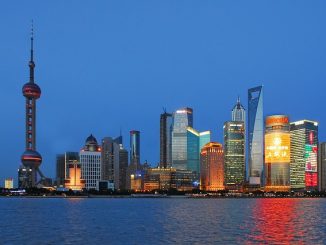I often visit China, and each time I’m struck by how much freer it seems, how much more market-oriented. But if you rely on the press, you’d think it is getting less free, less market-oriented. They will usually say something like “after an initial burst of initiatives, the reform process has recently gone into reverse.” The same reports are written about Indian economic reforms. Or economic and political reforms in many other countries. Be highly skeptical of these reports.
Obviously there are cases where economic and political reforms go into reverse. Venezuela is a good example. More often, however, the press falls victims to its usual bias–it’s news when a house burns down, but not when it’s built.
The powerful forces of neoliberalism and globalization are gradually making most countries freer and more market-oriented. When I first visited China in 1994 it seemed like a communist country. Now it seems mostly non-communist, although the communist presence is still quite significant. It also seems much freer. Yet virtually every year in between 1994 and 2011 I have read news articles about the market and political reforms being reversed.
The mistake people make is that reforms tend to be gradual and invisible, while setbacks are abrupt, disconcerting, and highly visible.
Martin Wolf recently wrote an article entitled “How China could yet fail like Japan.”
Define “failure.” In 1980 China was poorer than India, poorer than sub-Saharan Africa. Yes, if Japan is “failure,” then China will probably fail. Indeed I guarantee China will “fail,” because the news media reports failure, not success. Especially if you are a big and messy country. How could China not fail? Can you imagine a China that doesn’t have big problems; that lacks problems worthy of media attention?
PS. I love this Ryan Avent post on China, which deflates the so-called “Chinese miracle.”
- Bulenox: Get 45% to 91% OFF ... Use Discount Code: UNO
- Risk Our Money Not Yours | Get 50% to 90% OFF ... Use Discount Code: MMBVBKSM
Disclaimer: This page contains affiliate links. If you choose to make a purchase after clicking a link, we may receive a commission at no additional cost to you. Thank you for your support!




Leave a Reply